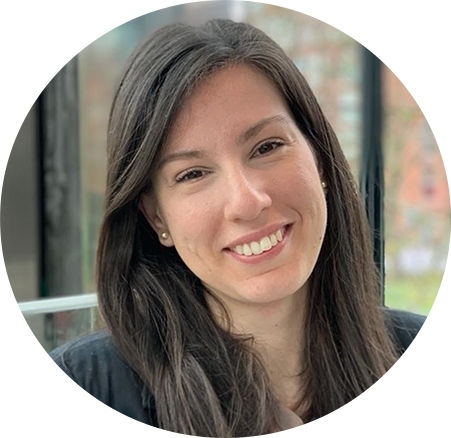Student representation
Students are central to the DTP, and we have developed a new system of representation to ensure that your voice is heard in all of our decision making and planning. Please get in touch with your representatives directly about any concerns, issues, worries, or praise that you have.
If you are interested in becoming a rep please contact the DTP administrator: nwcdtp@manchester.ac.uk
Ethan Coulson-Haggins
Ethan is a first-year PhD candidate in Classics and Ancient History at the University of Liverpool. Funded by the AHRC, his research examines the nature of land warfare in ancient Ionia and Lycia (two case study regions in modern day Türkiye) to offer a cross comparison with the popular hoplite infantryman of ancient Greece, thereby joining a new academic movement which seeks to situate the origin and development of hoplite warfare within its broader Mediterranean context.
His research interests thus include anything and everything related to warfare in the ancient Mediterranean. Ethan is also a member of the Milesian Tales research group and a co-editor of Decolonising the Ionian Migration (forthcoming).
Email: hsecoul2@liverpool.ac.uk

Undertaking a PhD is not only challenging academically but often proves to be a lonely and isolating experience. Acting as a student representative here at Liverpool, I hope to bring together fellow researchers both socially and academically to generate a sense of community and produce positive collaborations.
Pamela Forster
I am based in the Linguistics Department at Lancaster University. My research explores the impact of large social changes on local dialect and speech. I am drawing on archival and contemporary to study, promote, and curate the rich intangible heritage of this understudied region of north Lancashire.
This part-time collaborative doctoral award is supported by the North West Consortium Doctoral Training Partnership (NWCDTP) and is being carried out in partnership with Lancashire Archives.
Email: p.forster@lancaster.ac.uk

Undertaking a PhD can present so many different challenges and I feel it’s critical that the student voice is heard. As a part-time PhD student myself, I also appreciate some of the challenges that can arise when trying to juggle research, work, and family life. I really appreciate this opportunity to represent students from Lancaster and part-time students more broadly as a representative for the NWCDTP.
Darryl Peers
Darryl Peers is a writer from Aberdeenshire. He is an AHRC-funded Creative Writing PhD candidate at Manchester Writing School, where he is writing his first novel.
He is the co-editor of a special issue of Scottish Literary Review on queer form – his PhD topic – forthcoming in 2024 and a columnist for The Press & Journal.
Email: darryl.peers@stu.mmu.ac.uk

Timur Slavgorodskii-Kazanets
Timur Slavgorodskii-Kazanets is a first-year PhD candidate in Digital Media at the University of Salford. His research revolves around the virtual identities of video game players, and how exploring them can contribute to the fundamental issues in media studies and political science.
Also, Timur is interested in methodological improvements in studying Virtual Worlds including the application of mixed-methods strategies to the relevant subjects.
Timur’s PhD is titled “Game Narratives and Propaganda: Identity Construction in Virtual Worlds Narratives“. Previously, he worked on the topic while obtaining his MA degree at the Freie Universität Berlin. The current PhD research project involves using a practice-based methodological approach as Timur believes academic and industrial worlds of video games can benefit from active interaction with each other.

For me, being a student representative means helping others to be heard, both if the issues are administrative or scientific. As a researcher whose subject is quite obscure, I am happy to help others methodologically where my expertise can be relevant. PhD is a long journey, but we are all here to support each other along the way!
Hannah Snell
Hannah is a first year PhD Candidate in History at the University of Keele.
Hannah’s research is funded by the AHRC where she examines enslaved women’s resistance against slaveholding white women during the American Civil War 1861-5.
Hannah’s research interests include gender, power, race, class in the antebellum period and the American Civil War.
Hannah is a member of the David Bruce Centre, an Editor and Peer Reviewer for Under Construction at Keele and a Student Ambassador for History at Keele.

Richard Snowden-Leak
Richie’s PhD focusses on the effects New Weird fiction has on mental health, both in the creation of this fiction and the reading thereof in groups, especially in online forums.
He has been part of several research teams dedicated to the importance of medical humanities, such as SHARED and LivCare, which collect data from across Liverpool and the international community on how charities and arts-and-health-based practices have come to help the ailing mental health of those in marginalised communities.
Email: rsnowdenleak@gmail.com

It can be difficult trying to have yourself heard. Being a student representative, I hope to make it easier for the more quiet among us who feel like they have someone to reach out to when this journey we’re all on starts to press a little too hard on the shoulders. I am looking forward to helping, and getting to know, everyone; there’s no better way to learn than being among a community.
Marta Zingale
I am a second-year PhD student in Archaeology at the University of Manchester. I am from Italy, I did my BA and MA in Ancient Near East Archaeology at the University of Rome ‘La Sapienza’.
Then, I moved to Manchester in September 2021 to start my PhD”. My project aims to reconstruct the organization of pottery production during the third millennium in southern Mesopotamia (Iraq) with a focus on identifying recurrent gestures that characterize the production of specific standard vessel shapes and/or distinguish between production set-ups over time.
The research applies an interdisciplinary approach that combines macroscopic, radiographic, and experimental analyses. Furthermore, I have been working in southern Iraq since 2015 and this has allowed me to personally collect ceramic material for my research.

The PhD can be a lonely ride that very often leads students to feel lost and demoralised. During my journey, I realised, therefore, the importance of connecting with other PhD students to create a lively and stimulating environment in which to compare, share and learn. I decided to be a DTP representative because I would like to help other PhD students feel part of the NWCDTP community and make the most of the growth opportunities it has to offer.
